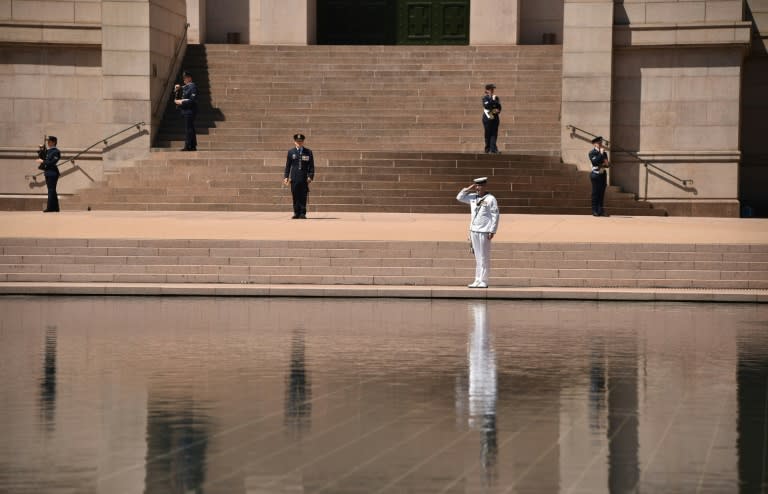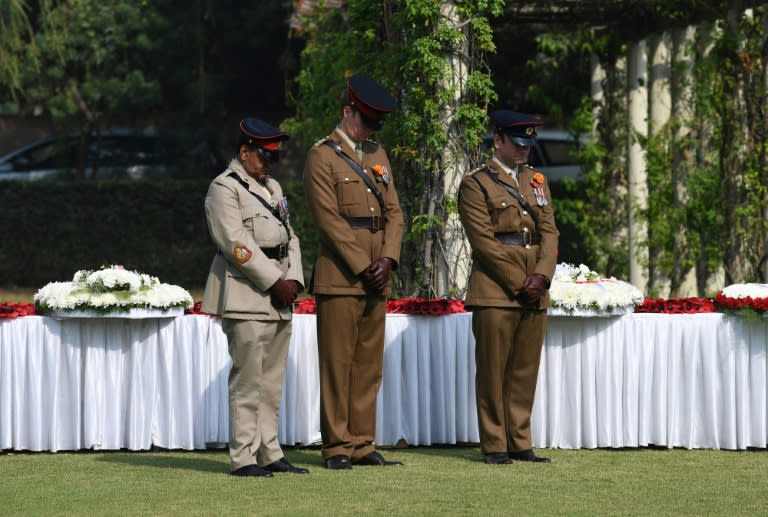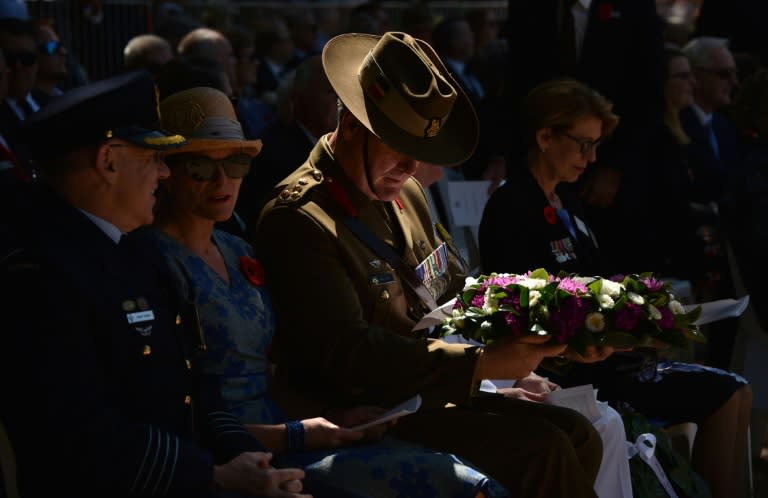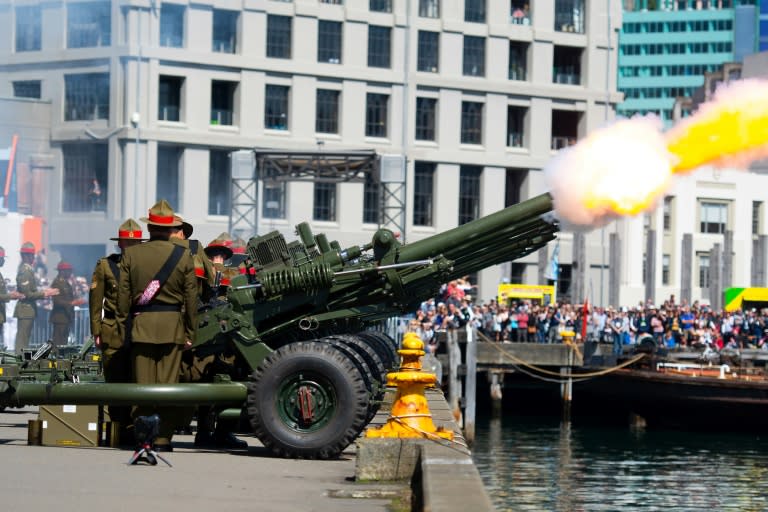Sombre ceremonies from Wellington to New Delhi mark WWI armistice centenary
India, Australia and New Zealand paused Sunday on the centenary of the end of World War I to remember the more than 150,000 of their countrymen who died fighting on the other side of the world. In sombre ceremonies from Wellington to New Delhi, huge crowds paid tribute to the servicemen and women who gave their lives in the Great War. The leaders of these Commonwealth nations -- whose forces were deployed across the globe 100 years ago -- also sounded a message of peace and hope for the world in the new century. "This was a war in which India was not directly involved yet our soldiers fought world over, just for the cause of peace," said Indian Prime Minister Narendra Modi on Twitter on Sunday. A Scottish piper performed at the Delhi War Cemetery where marigolds, a flower symbolic in India, intermingled with the poppies traditionally worn to remember the carnage in Europe and beyond. The centenary comes as India, then a British colony, seeks greater recognition of its contribution of 1.3 million troops to the allied war effort -- and the 74,000 who never came home. In Canberra, Prime Minister Scott Morrison spoke of the ultimate sacrifice made by Australians on gruesome battlefields far away in places like Fromelles in northern France. "For our tomorrows, they gave their today. In silence, we commit ourselves to standing by those who have returned home," he told thousands of people gathered at the national Remembrance Day ceremony. Of the more than 400,000 of the young Australian federation's citizens who enlisted, more than 300,000 served overseas and almost 62,000 died in the trenches. More than 10,000 servicemen from the Australian and New Zealand Army Corps (ANZAC) died during the abortive Gallipoli campaign on the Turkish peninsula -- a military failure that gave rise to the legacy of courage and close friendship between the two countries. - 'Roaring chorus' - The New Zealand commemoration followed two minutes of silence at 11:00 am on November 11, when the armistice took effect. There was a 100-gun salute on the Wellington waterfront, while nationally people cheered, church bells rang, emergency services sounded their sirens and ship and car horns blared. "The carillon and roaring chorus has recaptured the wave of spontaneous jubilation and hope which swept New Zealand when news of the Armistice broke," Prime Minister Jacinda Ardern told a service at the National War Memorial in Wellington. The June 1914 assassination of Archduke Franz Ferdinand, heir to the Austro-Hungarian throne, ignited a conflict that was contemporaneously described as "the war to end all wars". More than 70 million military personnel were mobilised and an estimated 10 million lost their lives. More than 100,000 New Zealanders -- about 10 percent of the population at the time -- served overseas during the war, and 18,300 were killed. "No family, no community in New Zealand went untouched by the effects of the war," Sarah Davies, the director of the World War I centenary programme, told AFP. burs-cf-grk-np/rma





